When
January 22 @ 3pm EST "Autism 101"
January 29 @ 3pm EST "Autism 101"
February 6 @ 10am EST "Autism 101"
February 20 @ 3pm EST "Sensory/Motor Sensitivities"
February 27 @ 3pm EST "Sensory/Motor Sensitivities"
March 6 @ 3pm EST "The Basics of Communication"
March 13 @ 10am EST "The Basics of Communication"
March 20 @ 3pm EST "Honoring Preferred Interests"
March 27 @ 3pm EST "Honoring Preferred Interests"
Cost
Autism 101: No cost
Autism 101 + 1 other webinar: $20
Autism 101 + 2 other webinars: $35
Autism 101 + 3 other webinars: $45
We accept payment through PayPal
Where
https://yapinc.webex.com
You will need a computer with internet access and a telephone to participate in the webinars.

Contact
Ann Branning
National Autism Training Coordinator
Youth Advocate Programs
717-413-2266
abranning@yapinc.org
Learning from the Inside-Out:
Training on the Autism Spectrum
Do you know, love or work with someone on the autism spectrum, or are you interested in learning more about it?
Youth Advocate Programs, Inc. (YAP) is excited to offer several modules of our unique training to youth, families, providers, educators and the general community! During the months of January, February, and March, we will be offering select webinars from YAP's core Autism Curriculum, created in partnership with Temple University and parent and self-advocates, via webinar.
Regardless of how much or how little you know about Autism, our intro course, "Autism 101" is being offered for FREE to introduce the the basics of Autism as well as YAP's approach. Subsequent trainings are available at a small cost. Space is limited, so register now. Purchasing a package of 4 webinars is the best deal!
Autism 101: FREE!
Autism 101 + 1 other webinar: $20
Autism 101 + 2 other webinars: $35
Autism 101 + 3 other webinars: $45
Training descriptions are detailed below. Join with us as we explore how to effectively work with those on the spectrum. We hope to see you in the new year!
Autism 101
Major Topics
- How autism is defined by the standard Diagnostic and Statistical Manual (DSM)
- The different kinds of autism
- What medical practitioners look for through the First Signs diagnostic protocol
- What conditions often co-occur with autism
- The importance of moving beyond the label and seeing the person
- Appreciate the importance of presuming intellect rather than deficiency
- Consider practical ways of demonstrating respect and building relationships
- Explore the concept of autism as a community and a culture
Sensory and Motor Sensitivities
Major Topics
- The nature and prevalence of sensory processing challenges
- The characteristics of children with sensory sensitivities
- The eight sensory systems and how they define individual experience
- Hyper- vs. hypo-sensitive responses and how to recognize them
- The nature and purpose of “self-soothing” activities
- Come to understand sensory processing differences through their own personal experiences
- Acquire practical support and accommodation strategies for addressing sensory processing differences
- Differentiate sensory sensitivities from the symptoms of illness or mental health needs
- Learn to self-assess for voice level, use of scents, etc. that may distress a person with sensory sensitivities
- Explore recreational activities that enhance sensory input and regulation
- Appreciate the positive outcomes of attending respectfully to sensory differences
The Basics of Communication
Major Topics
- The difference between communication and language
- Typical developmental expectations
- Perceived challenges to language development in children with autism
- The early role of joint attention and imitation in child development
- Supporting the development of language pragmatics in the older child
Program Objectives: Participants will
1. Consider ways to foster a broad range of communicative activities
2. Compare and contrast different intervention approaches to behavior, speech, and language
3. Distinguish between intentional “behaviors” and signs of illness or mental health problems
Honoring Preferred Interests
Honoring preferred interests, sometimes referred to as “passions,” is a central theme of Youth Advocate Programs’ work and is used as an indicator of program quality. Children and adults on the autism spectrum have strong natural interests, just as we all do. Research shows that acknowledging, sharing, and working with these interests brings great dividends: the person becomes more self-motivated and socially connected, and less dependent on prompts and artificial rewards.
- The power of natural motivators
- Floor Time Strategies (children)
- Modified Floor Time for older youth and adults
- Implementing the "discovery" process for transitions and employment
